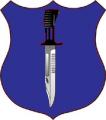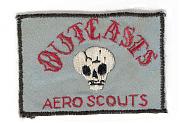The Implications of the 2008-2009 Gaza War in Times of Extended Conflict
Entry Excerpt:
Glory Restored?
The Implications of the 2008-2009 Gaza War in Times of Extended Conflict
By Dr. Russell W. Glenn, A-T (Anti-Terrorism) Solutions.
This study, sponsored by the U.S. Joint Forces Command Joint Irregular Warfare Center, has been approved for public release. To the best of our knowledge, Small Wars Journal is the first organization to publish this study on the Internet. This material is based on work supported by USJFCOM and the JIWC under Contract No. N00140-06-D-0060/065. Any opinions, findings and conclusions or recommendations expressed in this material are those of the author and do not necessarily reflect the views of USJFCOM or the JIWC.
From the preface:
The closing of the July–August 2006 Second Lebanon War left the Israel Defense Forces (IDF) an introspective organization. Once an example looked to by much of the world for lessons on martial prowess, the nation’s military—indeed, the country at large—found its performance against the Hezbollah enemy a far more punishing and less effective experience than expected. Some of that outcome was attributable to the foe’s preparations. Yet there were also self-admitted deficiencies in the areas of leadership, intelligence, inter-arms cooperation, decisiveness, and other areas that political and military leaders alike recognized had to be addressed. It was more than a matter of pride. In a region none too friendly, reestablishing the reputation of the IDF was felt to be a deterrent against further assaults.
Twenty-eight months later, the IDF attacked into Gaza after rocket attacks on Israel originating there spiked late in 2008. It was an attack made after a number of adjustments over the two-plus years since the Second Lebanon War. Operation Cast Lead, the designation for the undertaking, demonstrated renewed confidence blended with improved tactics, leadership, and joint cooperation.
This document reviews those adjustments, analyzes their effectiveness, and considers Israel’s performance in Gaza more generally. The report concludes with 12 recommendations pertinent to future U.S. operations in what has emerged as an era of persistent conflict.
This document will be of interest to individuals in the government, nongovernmental organizations, private volunteer organizations, and the commercial and academic sectors whose responsibilities include the study, planning, policy, doctrine, training, support, or conduct of insurgencies, counterinsurgencies, or other forms of stability operations in both the immediate future and longer term.
Glory Restored?: The Implications of the 2008-2009 Gaza War in Times of Extended Conflict
During his 22-year career with the U.S. Army, Dr. Russell W. Glenn served in Korea, Germany, the United Kingdom, and locations throughout the United States in addition to a combat tour with the 3rd Armored Division during Operations Desert Shield and Desert Storm in Iraq. Dr. Glenn was a senior defense analyst with RAND from 1997 to early 2009 after which he joined his current organization, A-T (Anti-Terrorism) Solutions. Dr. Glenn has a Bachelor of Science degree from the United States Military Academy and Masters degrees from the University of Southern California (MS, Systems Management), Stanford University (MS, Civil Engineering and MS, Operations Research), and the School of Advanced Military Studies (Master of Military Art and Science). He earned his Ph.D. in American history from the University of Kansas with secondary fields of military history and political science. His military education includes Airborne, Ranger, and Pathfinder qualifications. The author’s publications encompass some 50 books and reports in addition to over 20 articles regarding counterinsurgency, urban operations, counterterrorism, and other fields. This research was conducted within the Global Security Solutions division of A-T Solutions, Inc.
--------
Read the full post and make any comments at the SWJ Blog.
This forum is a feed only and is closed to user comments.






 Reply With Quote
Reply With Quote











Bookmarks